If you’re thinking about adding a dog to your family but worry about barking, you might be asking – do barkless dogs really exist?
Barkless dogs may seem like a mythical creature, but they do exist. Some dog breeds are known for their quiet nature and lack of barking, while others may bark less frequently than their counterparts.
However, it’s important to note that no dog is completely silent and all dogs have the potential to bark.
Table of Contents
Understanding Barkless Dogs
Barkless dogs are dogs that do not bark or bark very little. While no dog is completely silent, some breeds are known for being quieter than others.
Here are some things to keep in mind when it comes to barkless dogs:
Breeds of Barkless Dogs
There are several breeds of dogs that are known for being barkless or relatively quiet. Some of the most well-known barkless dog breeds include:
-
 Basenji: The Basenji is often referred to as the “barkless dog” due to their unique larynx structure that makes it difficult for them to bark. Instead, they make a yodeling sound that is quite distinctive. This breed is originally from Africa and was bred for hunting purposes. They are small to medium-sized dogs that are known for their intelligence and independence. While they may not bark, Basenjis are still vocal and may make other noises such as growling or whining (in addition to yodeling).
Basenji: The Basenji is often referred to as the “barkless dog” due to their unique larynx structure that makes it difficult for them to bark. Instead, they make a yodeling sound that is quite distinctive. This breed is originally from Africa and was bred for hunting purposes. They are small to medium-sized dogs that are known for their intelligence and independence. While they may not bark, Basenjis are still vocal and may make other noises such as growling or whining (in addition to yodeling). -
 Shiba Inu: The Shiba Inu is a Japanese breed that is known for their quiet nature. They are a small to medium-sized dog that was originally bred for hunting. They are known for their loyalty and affection towards their owners. They are also independent and have a strong personality. Although generally quiet and reserved, it can be vocal when it wants to be.
Shiba Inu: The Shiba Inu is a Japanese breed that is known for their quiet nature. They are a small to medium-sized dog that was originally bred for hunting. They are known for their loyalty and affection towards their owners. They are also independent and have a strong personality. Although generally quiet and reserved, it can be vocal when it wants to be.  Cavalier King Charles Spaniel: The Cavalier King Charles Spaniel is a small breed that is known for their gentle and affectionate nature. They are not completely barkless, but they are known for being quiet dogs. They were originally bred as lap dogs and are great companions. They are also known for their beautiful coat that comes in various colors.
Cavalier King Charles Spaniel: The Cavalier King Charles Spaniel is a small breed that is known for their gentle and affectionate nature. They are not completely barkless, but they are known for being quiet dogs. They were originally bred as lap dogs and are great companions. They are also known for their beautiful coat that comes in various colors. Glen of Imaal Terrier: The Glen of Imaal Terrier is a small breed that was originally bred for hunting in Ireland. They are known for their calm and quiet nature. They are also independent and have a strong personality. They have a unique appearance with their long body and short legs.
Glen of Imaal Terrier: The Glen of Imaal Terrier is a small breed that was originally bred for hunting in Ireland. They are known for their calm and quiet nature. They are also independent and have a strong personality. They have a unique appearance with their long body and short legs.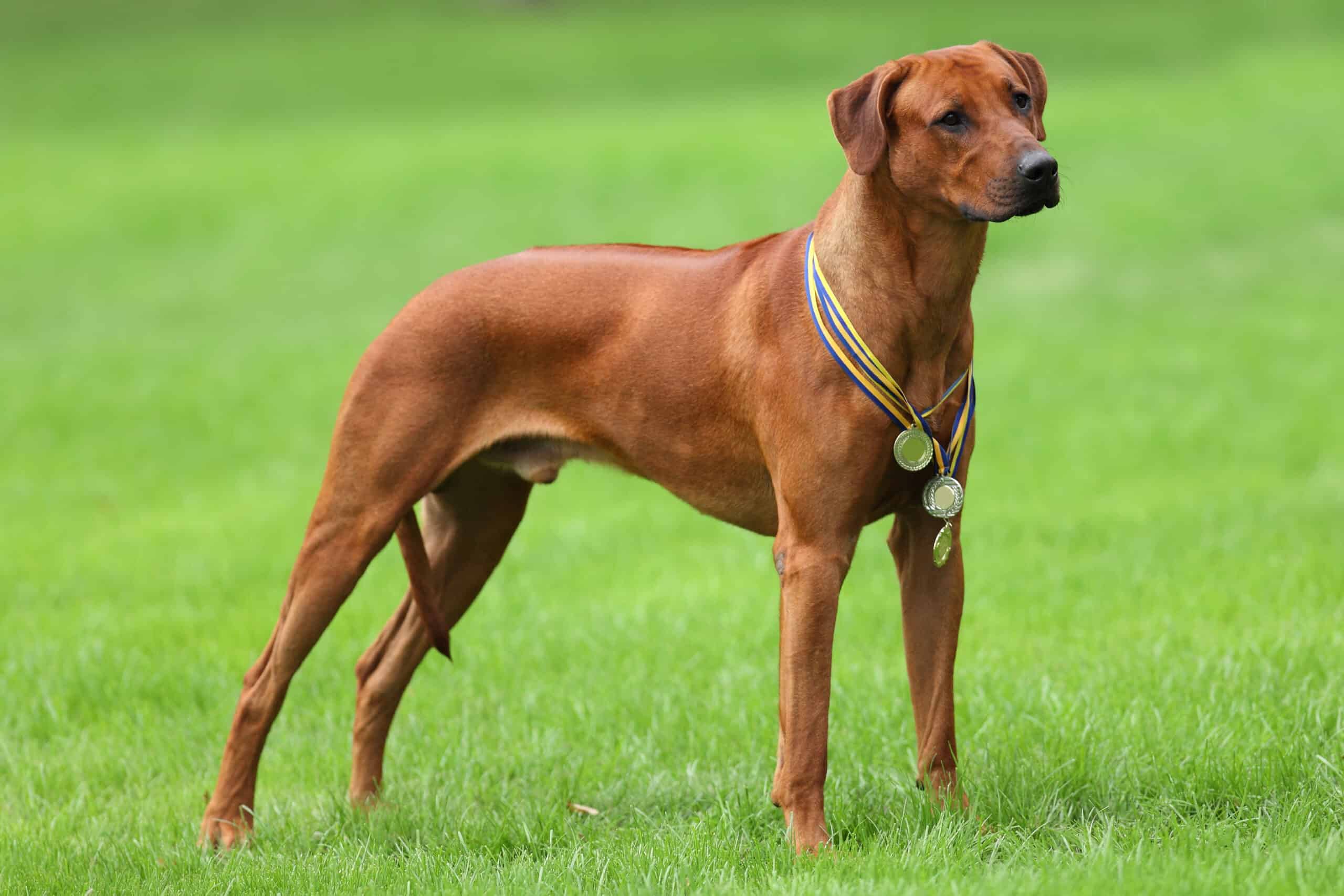 Rhodesian Ridgeback: The Rhodesian Ridgeback is a large breed that is known for their loyalty and protective nature. They were originally bred for hunting in Africa and are known for their distinctive ridge of hair on their back. While they are not completely barkless, they are known for being quiet dogs.
Rhodesian Ridgeback: The Rhodesian Ridgeback is a large breed that is known for their loyalty and protective nature. They were originally bred for hunting in Africa and are known for their distinctive ridge of hair on their back. While they are not completely barkless, they are known for being quiet dogs.
Overall, while there are several dog breeds that are known for their quiet nature, it’s important to remember that all dogs have the potential to bark.
It’s important to train your dog to bark only when necessary and to be respectful of your neighbors.
Why Some Dogs Bark Less
There are several reasons why some dogs bark less than others. For example, some breeds have been selectively bred for their quiet nature.
Additionally, some dogs may bark less because they have been trained not to bark or because they are simply less vocal than other dogs.
Is a Barkless Dog Right for You?
If you are looking for a dog that is relatively quiet, a barkless dog may be a good choice for you.
However, it is important to keep in mind that all dogs require some level of training and socialization, regardless of their bark frequency.
Additionally, it is important to choose a breed that is well-suited to your lifestyle and living situation.
Characteristics of Barkless Dogs
Temperament
Barkless dogs are known for their unique temperament. These dogs are often described as loyal, gentle, friendly, and independent.
They are sweet and playful, and they love to spend time with their owners.
Despite their lack of barking, they are still affectionate and intelligent dogs that make great companions.
One of the most interesting things about barkless dogs is their calm demeanor. They are not easily agitated or stressed, which makes them great pets for families with children.
They are also active dogs that enjoy playing and going on walks, but they are not hyperactive like some other breeds.
Physical Attributes
In addition to their unique temperament, barkless dogs also have distinct physical attributes.
Many of these dogs are small to medium in size, but there are a few larger breeds as well.
They have short hair or fur, which makes them easy to groom and maintain.
Some barkless dogs also have unique physical features, such as wrinkled skin or a curly tail. These features add to their charm and make them even more lovable.
Despite their lack of barking, these dogs are still great watchdogs and can alert their owners to potential dangers in other ways.
Living with Barkless Dogs
Barkless dogs communicate with their owners and other dogs through other means, such as body language, facial expressions, and vocalizations that are not barks.
Living with a barkless dog can be a unique and rewarding experience, but it also requires some specific training, grooming, and exercise requirements.
Training a Barkless Dog
Training is essential for any dog to ensure that they are well behaved and obedient, but it is especially important for barkless dogs.
Since they don’t bark, they need to learn other ways to communicate with their owners and other dogs.
This means that training should focus on teaching them to use body language, facial expressions, and other vocalizations to communicate their needs and desires.
It is important to start training at a young age and use positive reinforcement training. It’s the best approach for barkless dogs, as it helps to build a strong bond between the dog and its owner.
Grooming
Grooming is also an important aspect of living with barkless dogs. Most barkless dogs have short, smooth coats that require minimal grooming.
However, regular brushing and bathing are still necessary to keep their coats healthy and shiny.
It’s also important to regularly check their ears and teeth for any signs of infection or decay.
Exercise Requirements
Barkless dogs generally have a moderate amount of exercise requirements. They need daily walks and mental exercise to keep them healthy and happy.
However, since they are not as vocal as other dogs, it’s important to keep them on a leash when outside to prevent them from running off or getting into trouble.
Living in an apartment is also possible with barkless dogs, as long as they are given enough exercise and mental stimulation.
Health Considerations for Barkless Dogs
Barkless dogs may seem like the perfect solution for those who live in apartments or have close neighbors.
However, it is important to consider their health and well-being before adopting one.
Anxiety
Barkless dogs may experience anxiety due to their inability to communicate through barking.
They may resort to other forms of communication, such as whining or destructive behavior, which can be a sign of anxiety.
It is important to provide them with proper training and socialization to prevent anxiety-related issues.
Separation Anxiety
Separation anxiety can be a common issue among all dogs, including barkless breeds. They may become anxious and destructive when left alone for extended periods.
It is important to provide them with plenty of exercise and mental stimulation, as well as a comfortable and safe space to rest while you are away.
Health Issues
Some barkless breeds, such as the Basenji, can be prone to certain health issues. For example, they may be susceptible to hip dysplasia, progressive retinal atrophy, and Fanconi syndrome.
It is important to research the breed and consult with a veterinarian to ensure that you are providing them with proper care and treatment.
Other Quiet Dog Breeds
While barkless dogs may be rare, there are many breeds that are known for being quiet and less likely to bark excessively. Here are some other quiet dog breeds to consider:
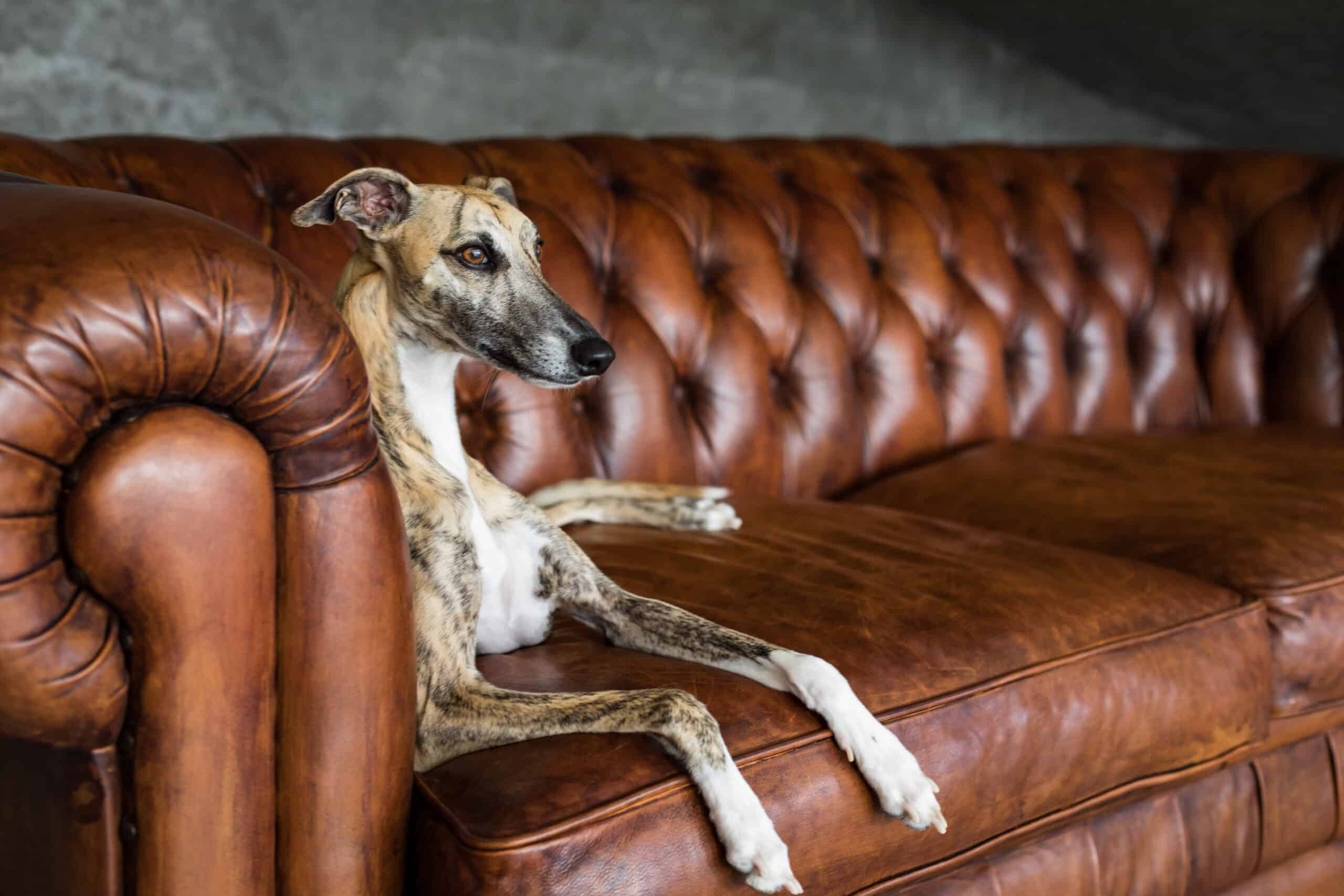 Greyhound: Greyhounds are known for their speed, but they are also a quiet breed. They are typically calm and gentle, making them great for families.
Greyhound: Greyhounds are known for their speed, but they are also a quiet breed. They are typically calm and gentle, making them great for families. Newfoundland: Despite their large size, Newfoundlands are known for being calm and quiet. They are great with children and make excellent therapy dogs.
Newfoundland: Despite their large size, Newfoundlands are known for being calm and quiet. They are great with children and make excellent therapy dogs. Scottish Deerhound: This breed is known for being quiet and reserved. They are gentle and affectionate with their families, but can be shy around strangers.
Scottish Deerhound: This breed is known for being quiet and reserved. They are gentle and affectionate with their families, but can be shy around strangers. Borzoi: These elegant dogs are quiet and reserved, but they can be sensitive and require a gentle touch. They are great with families and can be trained to be excellent therapy dogs.
Borzoi: These elegant dogs are quiet and reserved, but they can be sensitive and require a gentle touch. They are great with families and can be trained to be excellent therapy dogs. Saint Bernard: These gentle giants are known for being calm and patient. They are great with children and make excellent family pets.
Saint Bernard: These gentle giants are known for being calm and patient. They are great with children and make excellent family pets. Great Dane: While they may be large, Great Danes are known for being quiet and calm. They are gentle giants and make great family pets.
Great Dane: While they may be large, Great Danes are known for being quiet and calm. They are gentle giants and make great family pets.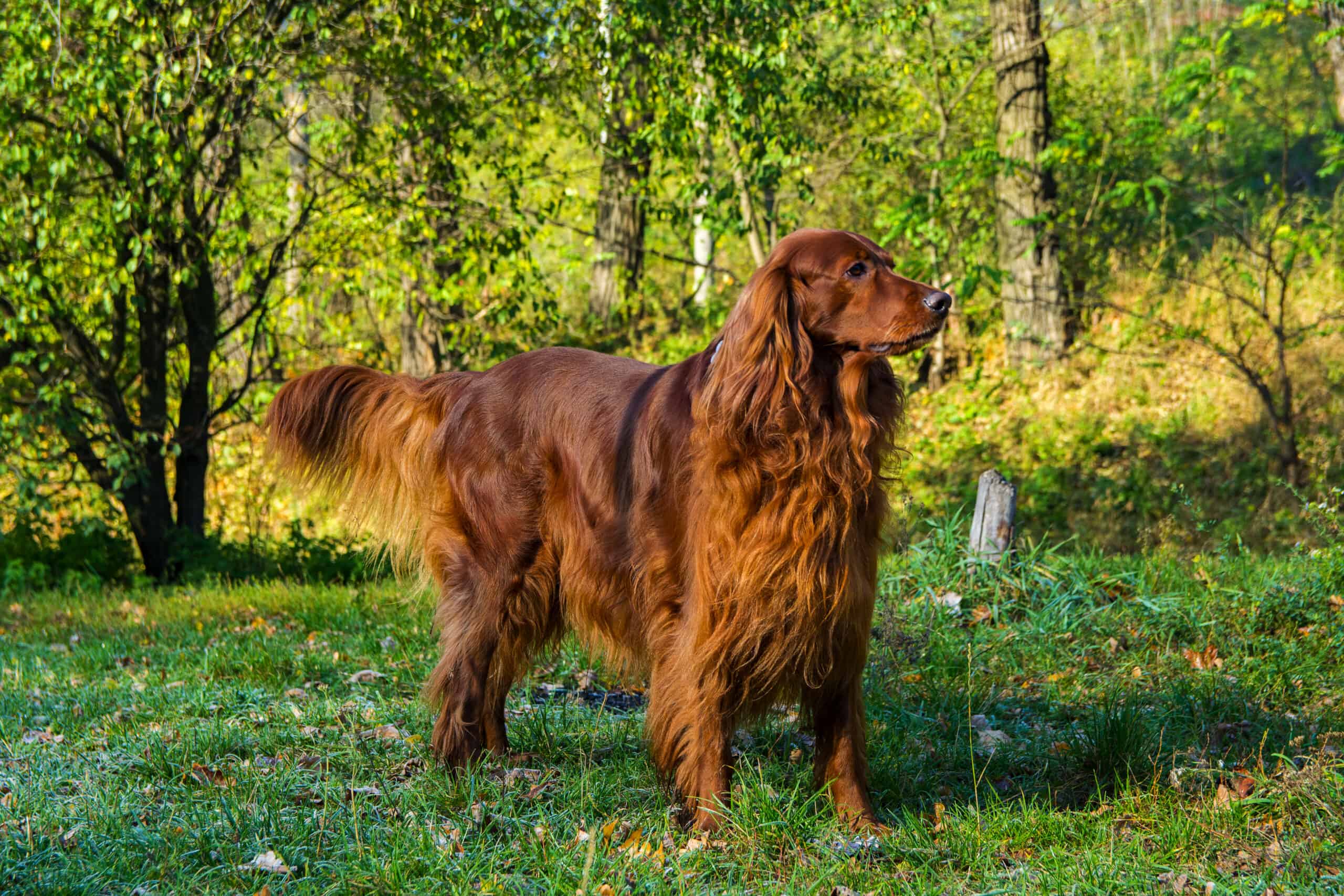 Irish Setter: Irish Setters are known for their beauty and athleticism, but they are also a quiet breed. They are loyal and affectionate with their families.
Irish Setter: Irish Setters are known for their beauty and athleticism, but they are also a quiet breed. They are loyal and affectionate with their families. Bernese Mountain Dog: These dogs are known for being gentle and calm. They are great with children and make excellent family pets.
Bernese Mountain Dog: These dogs are known for being gentle and calm. They are great with children and make excellent family pets. Coton de Tulear: These small dogs are known for being quiet and gentle. They are great with families and make excellent apartment dogs.
Coton de Tulear: These small dogs are known for being quiet and gentle. They are great with families and make excellent apartment dogs. Whippet: Whippets are known for their speed, but they are also a quiet breed. They are gentle and affectionate with their families.
Whippet: Whippets are known for their speed, but they are also a quiet breed. They are gentle and affectionate with their families. Saluki: Salukis are known for being quiet and independent. They are great with families, but can be shy around strangers.
Saluki: Salukis are known for being quiet and independent. They are great with families, but can be shy around strangers. Chow Chow: Chow Chows are known for their unique appearance, but they are also a quiet breed. They are independent and can be aloof with strangers.
Chow Chow: Chow Chows are known for their unique appearance, but they are also a quiet breed. They are independent and can be aloof with strangers.- Chinook: These dogs are known for being quiet and gentle. They are great with families and make excellent therapy dogs.
 English Bulldog: English Bulldogs are known for their wrinkles and stocky build, but they are also a quiet breed. They are loyal and affectionate with their families.
English Bulldog: English Bulldogs are known for their wrinkles and stocky build, but they are also a quiet breed. They are loyal and affectionate with their families. Pug: Pugs are known for their wrinkly faces and charming personalities, but they are also a quiet breed. Pugs are great with families and make excellent apartment dogs.
Pug: Pugs are known for their wrinkly faces and charming personalities, but they are also a quiet breed. Pugs are great with families and make excellent apartment dogs. Afghan Hound: Afghan Hounds are known for their beauty and grace, but they are also a quiet breed. They are independent and can be aloof with strangers.
Afghan Hound: Afghan Hounds are known for their beauty and grace, but they are also a quiet breed. They are independent and can be aloof with strangers. Collie: These dogs are known for their intelligence and loyalty, but they are also a quiet breed. They are great with families and make excellent therapy dogs.
Collie: These dogs are known for their intelligence and loyalty, but they are also a quiet breed. They are great with families and make excellent therapy dogs. Bullmastiff: Bullmastiffs are known for their size and strength, but they are also a quiet breed. They are loyal and protective of their families.
Bullmastiff: Bullmastiffs are known for their size and strength, but they are also a quiet breed. They are loyal and protective of their families. Italian Greyhound: Italian Greyhounds are known for their speed and agility, but they are also a quiet breed. They are affectionate and make excellent lap dogs.
Italian Greyhound: Italian Greyhounds are known for their speed and agility, but they are also a quiet breed. They are affectionate and make excellent lap dogs. Neapolitan Mastiff: Neapolitan Mastiffs are known for their wrinkles and massive size, but they are also a quiet breed. They are loyal and protective of their families.
Neapolitan Mastiff: Neapolitan Mastiffs are known for their wrinkles and massive size, but they are also a quiet breed. They are loyal and protective of their families. Australian Cattle Dog (Blue Heeler): Australian Cattle Dogs are known for their intelligence and energy, but they are also a quiet breed. They are loyal and make excellent working dogs.
Australian Cattle Dog (Blue Heeler): Australian Cattle Dogs are known for their intelligence and energy, but they are also a quiet breed. They are loyal and make excellent working dogs. Boxer: Boxers are known for their playful personalities, but they are also a quiet breed. They are loyal and protective of their families.
Boxer: Boxers are known for their playful personalities, but they are also a quiet breed. They are loyal and protective of their families. Chinese Shar Pei: Chinese Shar Pei are known for their wrinkles and unique appearance, but they are also a quiet breed. They are independent and can be aloof with strangers.
Chinese Shar Pei: Chinese Shar Pei are known for their wrinkles and unique appearance, but they are also a quiet breed. They are independent and can be aloof with strangers.
Frequently Asked Questions – Do Barkless Dogs Really Exist?
What are some small dog breeds that don’t bark much?
If you’re looking for a small dog that doesn’t bark much, consider the Basenji, Shiba Inu, or Whippet. These breeds are known for being relatively quiet and reserved.
What is the temperament of a Basenji?
Basenjis are known for being independent, curious, and energetic. They are intelligent dogs that can be trained with patience and consistency.
They are also affectionate with their families but can be reserved with strangers.
How much does a Basenji weigh?
Basenjis typically weigh between 22 and 24 pounds for males and 20 to 22 pounds for females.
What is the origin of the Basenji breed?
The Basenji is an ancient breed that originated in Central Africa. They were originally bred for hunting and were used to track and chase small game.
Are there any dog breeds that don’t shed or bark?
While there are some dog breeds that shed less than others, there is no such thing as a completely non-shedding dog.
Similarly, while there are some dog breeds that are generally quiet, all dogs have the ability to bark and/or make vocal sounds.
What is the only barkless dog breed?
The Basenji is often referred to as the only barkless dog breed, but this is not entirely accurate.
While Basenjis do not bark in the traditional sense, they do make a variety of other vocalizations, including yodels, whines, and growls.

